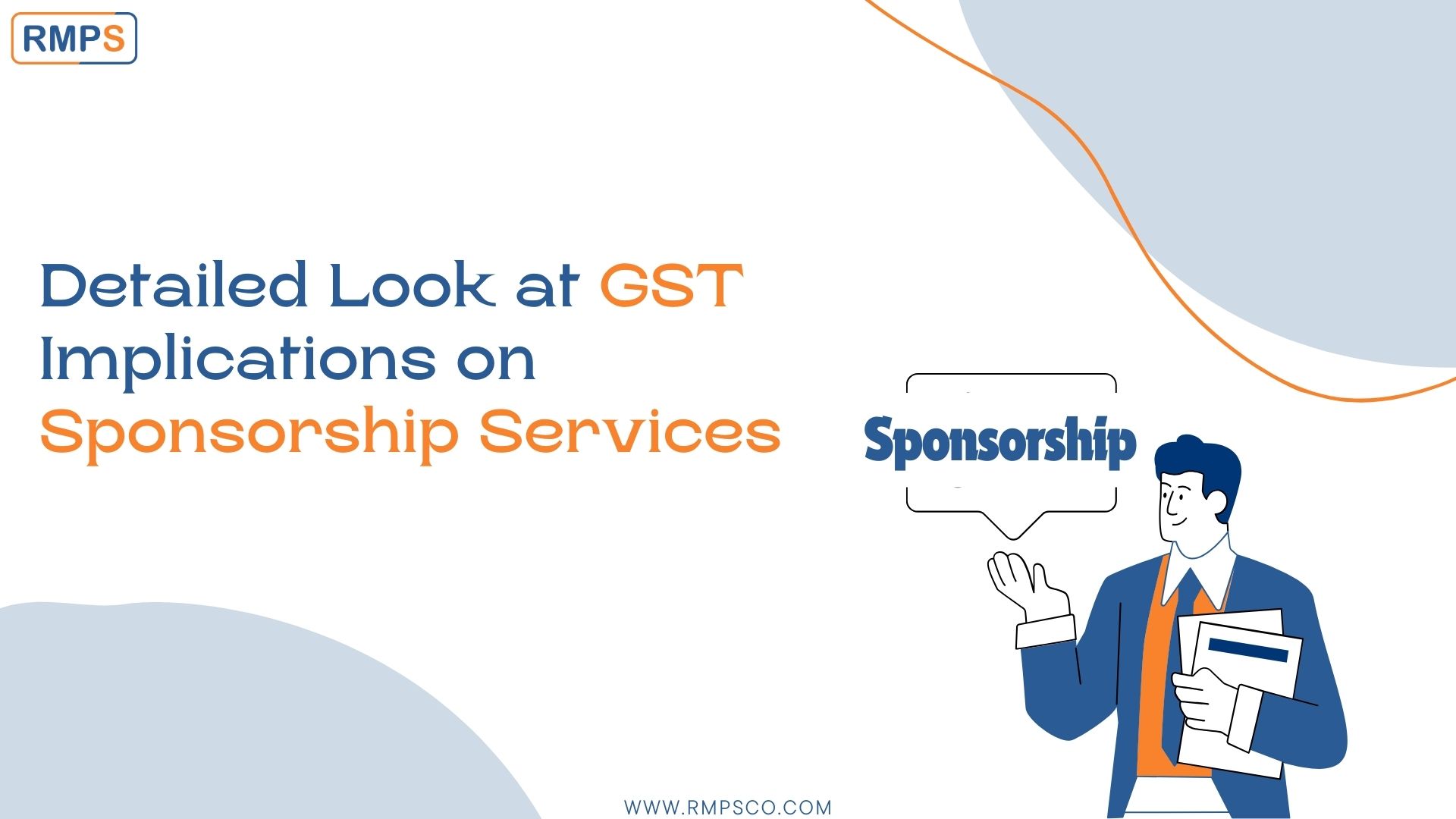
Introduction
In the world of business, Sponsorship Services play a pivotal role in promoting brands, logos, and products. Understanding the Goods and Services Tax (GST) implications on these services is crucial for compliance and efficient tax management.
What Are Sponsorship Services?
Sponsorship services refer to contractual agreements where a service provider promotes or displays a sponsor’s brand, logo, or products in exchange for a fee. These services are subject to GST, and the rate applicable is generally 18%.
GST Registration for Sponsorship Services
- Threshold Limits: Exceeds the turnover threshold of ₹40 lakhs for goods or ₹20 lakhs for services (₹20 lakhs for goods and ₹10 lakhs for services in special category states).
- Voluntary Registration: Even below the threshold, firms can opt for voluntary registration to avail input tax credit and ensure compliance.
What is the GST Rate on Sponsorship Services Event?
Sponsorship services are typically subject to GST under the reverse charge mechanism. This means that the recipient of the service (the sponsored entity) is liable to pay GST, rather than the sponsor. The GST rate on sponsorship services for events in India could vary based on the specific circumstances. GST rates were typically set at either 12% or 18%, depending on the nature of the event and the services provided. Here’s a breakdown of how the GST rate might apply:
GST Rate of 18%: Sponsorship services related to sports events and activities were typically subject to an 18% GST rate. This included sponsorships for sporting events, tournaments, and other sports-related activities.
GST Rate of 12%: In some cases, sponsorship services for cultural or artistic events were subject to a lower GST rate of 12%. This could include sponsorships for music concerts, art exhibitions, or cultural festivals.
GST Credit ITC For sponsorship services Provider
Input tax credit (ITC) for the GST paid at a rate of 18% under the Reverse Charge Mechanism (RCM) on sponsorship services can be claimed by Section 16 of the CGST Act, 2017 if these services are acquired for business purposes or taxable supplies.
However, it’s crucial to note that when procuring sponsorship services from an unregistered supplier, the recipient must issue a self-invoice as mandated by Section 31(3)(f) of the CGST Act, 2017 upon receiving the services. The recipient can then avail ITC based on this self-invoice, provided they make the necessary tax payment.
Conditions to Claim GST ITC Credit
To claim ITC on sponsorship expenses, sponsors must meet certain conditions:
1. The expenses should be incurred in the course of business.
2. Proper documentation and invoices must be maintained.
3. The sponsor should have a tax invoice or debit note.
4. The supplier of goods or services must have correctly deposited the GST with the government.
Additionally, to claim Input Tax Credit (ITC) for GST paid under the RCM on sponsorship services, it’s imperative to comply with the requirement that the recipient issues a self-invoice as per the provisions outlined in Section 31(3)(f) of the CGST Act, 2017. This obligation applies when sponsorship services are procured from an unregistered supplier.
When does GST become Payable for Sponsorship Services?
GST becomes payable for sponsorship services at the time of supply or when the invoice is issued, whichever is earlier. The recipient of the service (the sponsored entity) is responsible for calculating and remitting the applicable GST.
What is the SAC Code for Sponsorship Services?
The Service Accounting Code (SAC) for sponsorship services under the Goods and Services Tax (GST) system in India is 998397. Businesses providing services should use this SAC code when filing their GST returns and invoices.
LinkedIn Link : RMPS Profile
This article is only a knowledge-sharing initiative and is based on the Relevant Provisions as applicable and as per the information existing at the time of the preparation. In no event, RMPS & Co. or the Author or any other persons be liable for any direct and indirect result from this Article or any inadvertent omission of the provisions, update, etc if any.
Published on: July 3, 2024
